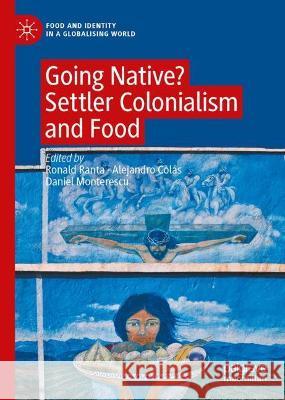'Going Native?': Settler Colonialism and Food » książka
topmenu
'Going Native?': Settler Colonialism and Food
ISBN-13: 9783030962678 / Angielski / Twarda / 2022 / 277 str.
'Going Native?': Settler Colonialism and Food
ISBN-13: 9783030962678 / Angielski / Twarda / 2022 / 277 str.
cena 562,23
(netto: 535,46 VAT: 5%)
Najniższa cena z 30 dni: 539,74
(netto: 535,46 VAT: 5%)
Najniższa cena z 30 dni: 539,74
Termin realizacji zamówienia:
ok. 22 dni roboczych
Dostawa w 2026 r.
ok. 22 dni roboczych
Dostawa w 2026 r.
Darmowa dostawa!
Kategorie:
Kategorie BISAC:
Wydawca:
Springer Nature Switzerland AG
Seria wydawnicza:
Język:
Angielski
ISBN-13:
9783030962678
Rok wydania:
2022
Ilość stron:
277
Wymiary:
21.0 x 14.8
Oprawa:
Twarda
Dodatkowe informacje:
Wydanie ilustrowane











